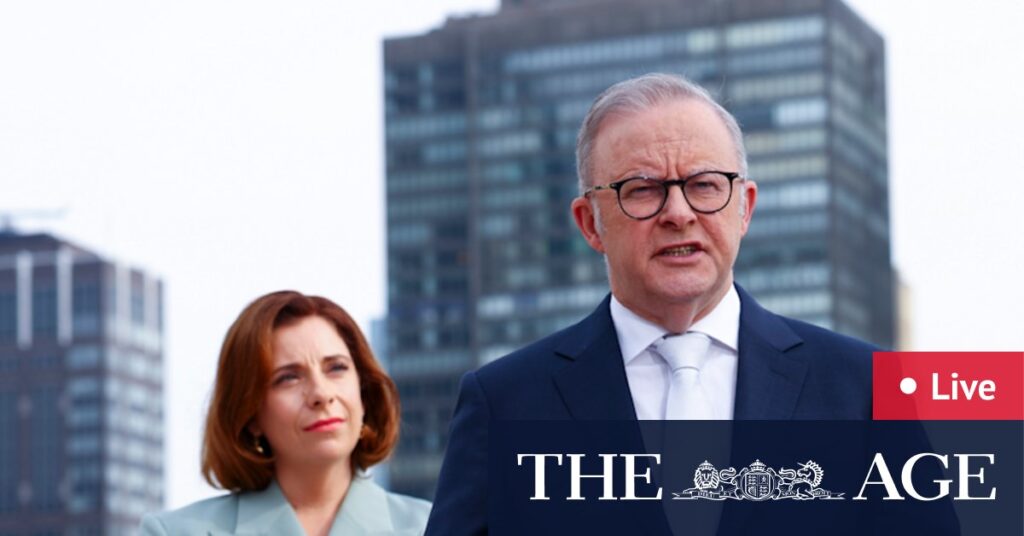
Prime Minister Anthony Albanese has made a compelling case at the United Nations General Assembly, urging nations to join Australia in recognizing the state of Palestine. This move, which aligns with actions taken by Canada and the United Kingdom, underscores a commitment to the principles enshrined in the United Nations Charter. Albanese emphasized that these principles, dedicated to saving future generations from war and promoting human rights, remain as relevant today as they were 80 years ago.
Albanese stated,
“Australia recognized the state of Palestine, because, to quote from the [United Nation’s] Charter that forms the very foundations of this institution and reflects the very best of its idealism. We are determined: ‘To save succeeding generations from the scourge of war. To reaffirm faith in fundamental human rights. To promote social progress and better standards of life in larger freedom. And for these ends: to practice tolerance and live together in peace with one another as good neighbours’.”
Addressing Middle East Tensions
The announcement comes at a time of heightened tensions in the Middle East, with Albanese urging the international community to seize the opportunity for peace. He questioned the relevance of the UN’s foundational words if they cannot be applied to the region, highlighting the need for decisive action.
“Every nation that takes a seat in this room has put its name to those principles. Peacekeepers and aid workers from all over the world have risked and lost their lives in the service of those ideals. So we must ask ourselves: When can those words hold meaning, if not now? Where can those words apply, if they do not apply to the Middle East? And what can we, the members of the United Nations say we stand for, if we cannot say we stand for this. There is a moment of opportunity here – let us seize it,” he said.
Confronting Iranian Interference
Meanwhile, Albanese addressed the issue of Iranian interference in antisemitic attacks in Australia, marking a significant shift in the country’s foreign policy stance. He revealed that Australian security agencies had confirmed the Iranian regime’s involvement in firebombing incidents at a synagogue in Melbourne and a Jewish restaurant in Sydney.
“Just last month, Australian security agencies confirmed that the Iranian regime orchestrated the firebombing of a synagogue in Melbourne and a Jewish restaurant in Sydney. Criminal acts of cowardice, aimed at spreading fear,” Albanese said. In response, Australia expelled the Iranian ambassador, a move not seen since World War II, emphasizing that there is no place for antisemitism in the world.
Historical Context and Global Implications
The expulsion of the Iranian ambassador marks a rare and significant diplomatic action by Australia, reflecting a broader global trend of nations taking a firmer stance against state-sponsored terrorism and human rights violations. This development follows a comprehensive investigation by ASIO, which linked the attacks to orders from the Iranian government.
Albanese highlighted the broader challenges faced by the international community, noting that in 2025, the world is confronted with a myriad of threats, both old and new. “Dictators whose hold on power derives solely from their capacity for cruelty to their own citizens. Tyrants who invade sovereign nations to further their own ambitions,” he said.
Looking Forward: A Call to Action
As the world grapples with these complex challenges, Albanese’s address at the UN serves as a call to action for the international community. By recognizing Palestine and taking a stand against Iranian interference, Australia is positioning itself as a leader in promoting peace and human rights.
The prime minister’s remarks resonate with a global audience, urging nations to reflect on their commitments to the ideals of the United Nations and to take concrete actions to uphold them. As the international community navigates the complexities of modern geopolitics, Albanese’s words serve as a reminder of the enduring importance of diplomacy, cooperation, and shared values.
In conclusion, the recognition of Palestine and the response to Iranian interference represent significant steps in Australia’s foreign policy, with implications that extend beyond its borders. As nations gather at the United Nations, the call for a renewed commitment to peace and human rights remains more urgent than ever.







